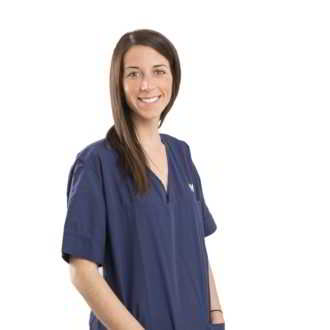

Amenorrhea is a lack of menstruation – simply, you don’t get periods. There are two types. Primary amenorrhea is diagnosed if you have not started your periods by the age of 16. Secondary amenorrhea is when a woman previously had periods in a normal way, but these have stopped for six months or more. In the case of primary amenorrhea, it can often be attributed to differences in development speed. A delayed appearance of secondary sexual characteristics, as well as the beginning of menstruation, can frequently run in families and provided periods start by the age of 16, there is no cause for concern. Delayed development aside, there is little difference between the two types. Secondary amenorrhea, defined by a prolonged period absence, is more common than primary amenorrhea.
In this article, we focus on the causes of amenorrhea and its symptoms, which can be many and varied, and the different types of treatment that may be recommended.
Symptoms of amenorrhea
Apart from the most obvious symptom, the absence of periods, other symptoms can appear depending on whether the cause is hormonal, lifestyle-related or a result of medication. Possible symptoms include a milky discharge from the nipples, hair loss or excess facial hair, pain in the pelvis, headache or changes in your vision.
Causes of amenorrhea
There are certain times when it is perfectly normal and natural not to have periods. These include when you are pregnant or breastfeeding, during childhood before puberty, and after natural menopause. Other than these non-problematic causes, there is a whole variety of reasons why the onset of periods can be delayed, or if they have started, they then stop. The possible reasons fall into three main categories, though in individual cases, these could overlap. These are lifestyle factors, hormonal problems and certain medications.
Hormonal causes
A hormonal imbalance is often at the root of any period irregularities. These could be caused by:
- Polycystic ovarian syndrome (PCOS) is the most common cause of amenorrhea. This condition is characterised by disordered ovulation and increased androgen levels.
- Thyroid gland problems, whether overactive (hyperthyroidism) or underactive (hypothyroidism), can cause irregularities in the menstrual cycle and can lead to period absence if left untreated.
- Premature menopause can occur from the age of around 40 rather than the age of 50, which is the norm. When this happens, it is because of an early depletion of the ovarian reserve, so ovulation and periods stop altogether.
Medication
Several drugs can cause a hormonal imbalance which shows itself in amenorrhea. These include antipsychotics, medication for high blood pressure, chemotherapy and radiotherapy, antidepressants and allergy medicines.
Structural problems
Primary amenorrhea and secondary amenorrhea can sometimes have structural causes, such as anatomical problems inside the reproductive organs that prevent menstrual blood flow. Amenorrhea is commonly seen in conditions such as Asherman’s syndrome, where intrauterine adhesions form inside the uterus and cervix.
Lifestyle
- Stress can have many effects on the body that appear unconnected to the cause. When you are stressed, periods can become irregular or stop altogether. Although it’s easier said than done, avoiding stress by making sure that you make time to relax, exercise regularly and follow a well-balanced diet can all help to regulate your periods.
- Sudden weight loss can also cause your periods to stop. If your BMI falls below 18.5 for whatever reason, especially if this drop is sudden, your periods may stop completely. If you are struggling with an eating disorder, it is important to seek help. Organisations such as Beat Eating Disorders UK offer 1-2-1 web chat services and peer support groups.
- Being overweight can also affect your menstrual cycle and cause infertility through lack of periods and ovulation. When you are overweight and have an excess amount of body fat, your cells produce more oestrogen. Too much oestrogen can disrupt your menstrual cycle. Those with a BMI over 30 are more at risk to experience these problems. If you are seeking to lower your BMI below 30, you can ask your GP for a referral to a dietitian who can advise you on how to lose weight safely.
- Extreme exercise can have a similar effect to extreme dieting. If you are dedicated to the gym, a runner or any kind of athlete, your body’s muscle-to-fat ratio can also affect your hormonal balance and menstrual cycle. If your periods have stopped and this is a problem, you should try to cut back to a more reasonable level of exercise, and your reproductive system should return to normal.
Treatment for amenorrhea
Treatment would depend on the condition’s underlying cause, so the first step is to consult your GP. You may be referred to a counselling service or dietitian if the problem arises from stress or being over or underweight, or you could be referred to a gynaecologist or endocrinologist if the problem is more related to a hormonal imbalance or physical factors. You will probably need a complete gynaecological examination, and you could also be referred for an ultrasound scan and blood tests.
Medications may be prescribed if, following tests, irregularities in the pituitary or thyroid glands are causing your periods to stop. If another underlying condition, such as PCOS, is causing the lack of periods, you could be prescribed either the contraceptive pill or medication containing progesterone. These therapies can bring the menstrual cycle back to normal. If the cause is early menopause, hormone replacement therapy may be recommended.
Finding out how IVI can help
The main impact of amenorrhea is that it causes infertility. Since the menstrual cycle is centred on ovulation – the release of an egg that can potentially be fertilised – if periods cease, you are not ovulating. If you have concerns about your fertility due to amenorrhea or even a disrupted or irregular menstrual cycle, discussing the issue with a fertility specialist can be very helpful for your peace of mind. You need to know whether your condition is treatable and your options.
If you want to know more about our treatments and services, you can visit our website. If you would like to get in touch, it’s as simple as completing our online contact form, or you can call us on 0800 52 00 161.





Comments are closed here.